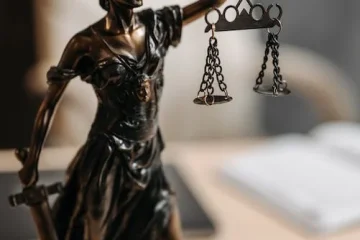We inherited from the British, a judiciary known for its independence

We inherited from the British, a judiciary known for its independence, impartiality and erudition. Its job was to decide disputes involving rights and obligations between citizen and citizen and the citizen and the state. It did not legislate, it did not act as the executive. In the 70 years since then, the judiciary has changed a lot. It is no longer a adjudicator of disputes. It has become the executive, deciding whether or not Bombay needs a coastal road and holding that It does not when the common man and the elected government wanted it and the government had invested hundred of crores of rupees; so too in Maradu, to give another example, ordered world-class apartments which posted no environmental threat and involved no violation of coastal zone rules, without even hearing the 350 flat owners and shooing them away when they approached the court complaining that they were never heard. Assuming there be a violation, the statute provides for a vested right to seek regularization and thousand of structures all over India are regularized because no elected government can be as senseless to render common people homeless because the builder had violated the rules.
In Bombay, millions of hutments of poor slum dwellers in occupation of their shanties for decades were demolished at the instance of a PIL of an elitist NGOs like BEAG. One would wonder how judges could be so insensitive and by their orders render poor people homeless, acting as the executive, compelling the government by threatening with the power of contempt. The reason is simple. The senior judges of the SCs and HCs come from a narrow pool of dynasties of judges and lawyers who have not actually seen and experienced the suffering of the poor people. Whether we like it or not, we are ruled by the judges. Therefore, unless the composition of the judges and the elite class of lawyers change and become inclusive of the sons and daughters of the common man, who are meritorious, deserving and competent, our courts will continue to pass judgements rendering poor slum dwellers, home owners like in Maradu, homeless. It is unrealistic to expect the press to canvass the cause of the common people because the threat of contempt, like a democles’ sword hangs over their head. Reforms are possible only if the ordinary members of the bar and the common man come forward and seek transparency and reforms in judiciary through peaceful, constitutional and legal means. There are many in the judiciary, nay, even in the elite class of lawyers who support NLC’s Campaign. The day when they openly support us is not far, provided we make NLC a big movement, which is easily achievable. NLC has targeted a membership of 1 lakh through its WhatsApp groups. Today we have a membership of more than 17,000. With each day, more are joining the groups. We are becoming a bigger family.
Kindly forward the NLC’s link to your friends and colleagues. A word of caution, you must tell them not to post irrelevant and unwholesome messages and videos which vitiate the atmosphere, as also clog the Groups. I also request one and all to suggest better means of communication so as strengthen our organization.
Mathews J nedumpara,
President,
National Lawyers Campaign For Judicial Transparency And Reforms.



